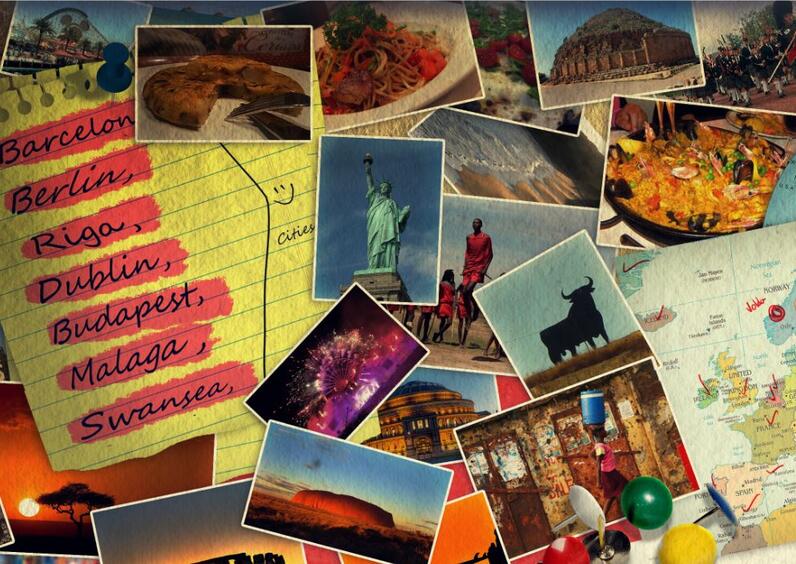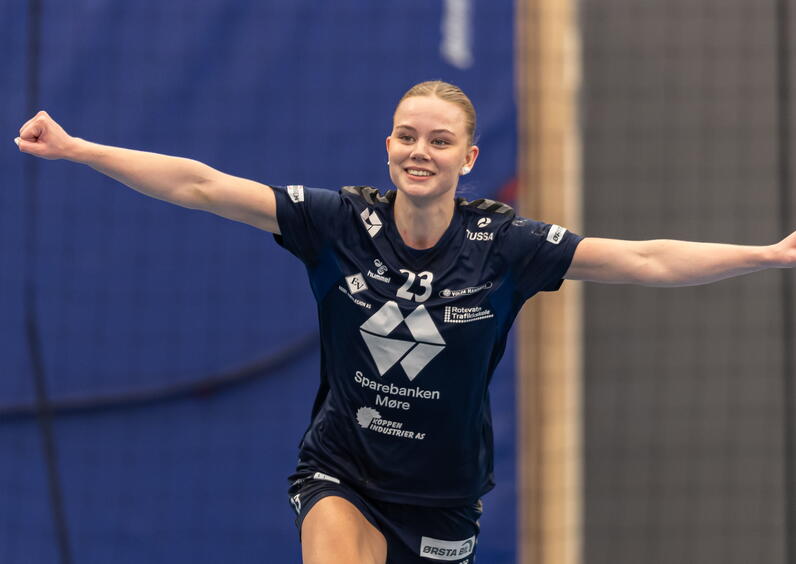International students found gold on the norwegian coast
A group of international students at Volda University College got their bags full of experiences when they traveled to Runde and fried elbow shells, tasted seaweed, almost took gold coins home with them and learned about Norwegian coastal culture.

A group of international students at Volda University College got their bags full of experiences when they traveled to Runde and fried elbow shells, tasted seaweed, almost took gold coins home with them and learned about Norwegian coastal culture.
One day with a completely different and beautiful classroom awaited the students who study REL 110 Intercultural understanding, one of the subjects of the year study for religion, culture and society, when they traveled to Runde. 15 students, everyone was international and unfamiliar with what they were going to meet.
– We are so happy to be able to offer them such a trip. It is something completely different than what we do on a daily basis, says associate professor Hildegunn Valen Kleive, who together with associate professor Jostein Garcia de Presno was behind the excursion.
– This is very important for the social life. And when we also manage to connect it to the professional a bit, it's absolutely great, says de Presno.
Joking with lunch
Although perhaps not an elbow dish from the shore at Runde, fried in a storm kitchen, climbing up on the podium over culinary experiences for neither students nor teachers, the experience around it was something they will remember.
With them on the shore, they had a marine biologist from Runde Miljøsenter and his colleague, Johannes Kjær Madsen, nature guide at the center and trained nature guide from Volda University College.
– The day was really good! We learned so much from the time we were on the shore. Now I think we all know a lot more about seaweed and kelp, for example. We tasted seaweed, and were to recognize by ourselves what seaweed we could eat. And elbow shells yes – everyone got one and ate it. But I think it was good that fish soup and pasta salad was served at the environmental center afterwards, Kleive and de Presno chuckle.
Gold coins and puffins
Inside the environmental center, the students were presented for the history about the tax at Runde. A treasure that contained, among other things, gold money after the Dutch cargo ship Akerendam sank off Runde in 1725. In 1972, the tax was found by divers – and 50 years later, some Dutch students were from Volda University College and saw a small part of the valuable tax from their homeland.
– They thought it was fun and wanted to take the gold coins home to the Netherlands again, they told Presno with a laugh.
Inside the environmental center, the students were also introduced to the bird life on Runde, with the distinctive puffin that the bird mountain on Runde is so famous for, in the center.
– We talked about the puffin being like a thermostat on climate change. But also how overfishing from the fishing industry in our region can help kill the livelihood of the special bird species, says Kleive and de Presno.
Surprised about the relationship with the teacher
Up on the weather-hard bird mountain where puffins managed to get into the mountain wall, the students also went, and got a nice view of the sea with the purchase.
Not quite like home for many of them. Nature that clearly leaves traces.
– One of the students I went with was completely dumbfounded with admiration. He had big eyes, says de Presno.
– I talked to a student who had not enjoyed going for a walk in nature before this. She had never quite managed to take the nature in. In addition, she was both happy and a little surprised to be able to walk a path to talk to the teacher about this and that. She thought it was special that the formal distance between student and teacher was, so to speak, blurred, Kleive adds.
She and de Presno had clear thoughts about what they wanted with the trip, which was funded by coronary funds from the Ministry of Education and Research for which the teachers applied.
– The social after the time we have been through our priority number one. The students live far from home and it has not been so easy to go home during the pandemic. Then it was good with such a trip where you can loosen up and be together. At the same time, we also wanted to show something special Norwegian and the coastal culture that we have in this part of the country. We think we close pretty well with both, Kleive and de Presno smile.














